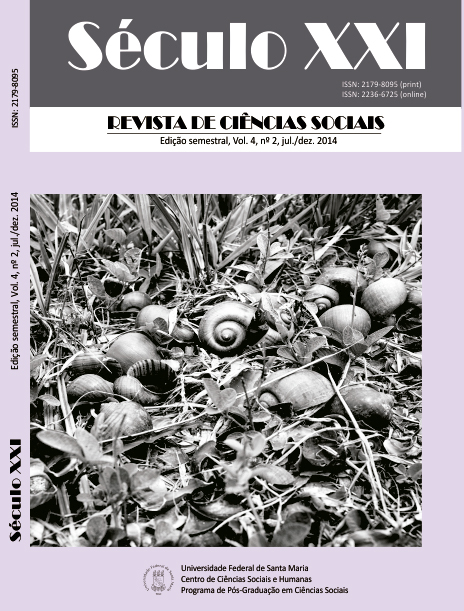Academic collective of sexual diversity and the critique to institutionalization of the militancy LGBT
DOI:
https://doi.org/10.5902/2236672517041Keywords:
Sexual Diversity, Social Movements, Academic collective, Institutionalization.Abstract
This text is a result of a study aimed at consolidating and understanding of social phenomena that characterize the dynamics of political action of Academic Collective of Sexual Diversity. The methodological approach basically involves production of data through semi-structured interviews and focus groups. These groups have been a form of militancy critique of the classic LGBT activism. These groups seek to build their militancy trying to break away from the need for a unitary political subject and always try to emphasize the multiplicity and heterogeneity of the subjects that make up the militancy. We can perceive in Brazil the increase of participation of civil society in social policy through participatory institutions. In this context we see a growth in the LGBT movement and increase its legitimacy in formulating public policies for this population. However, such policies by, having to fit a model of “gay” and “lesbian” required by the state, cause mischaracterization of the identity and the exclusion of those who do not fit the hegemonic model of LGBT subject required by public policy.Downloads
Downloads
Published
How to Cite
Issue
Section
License
Authors who publish in this journal agree with the following terms:
1. Authors keep the copyrights and allow the journal the right of first publishing, having the paper simultaneously licensed by Creative Commons Attribution License that allows the sharing of the article – copyright recognized - and first publishing in this journal.
2. The journal is allowed to require the copyrights transfer, allowing the article to be used under noncommercial purposes, including the right to send the paper to Free Access or Paid databanks, not assuming the obligation to pass on the value charged from users to the authors.
3. Authors are allowed to take additional contracts separately for nonexclusive distribution of the paper’s version published in this journal (e.g. publishing in institutional repository or as book chapter), recognizing the copyright and first publishing in this journal.







